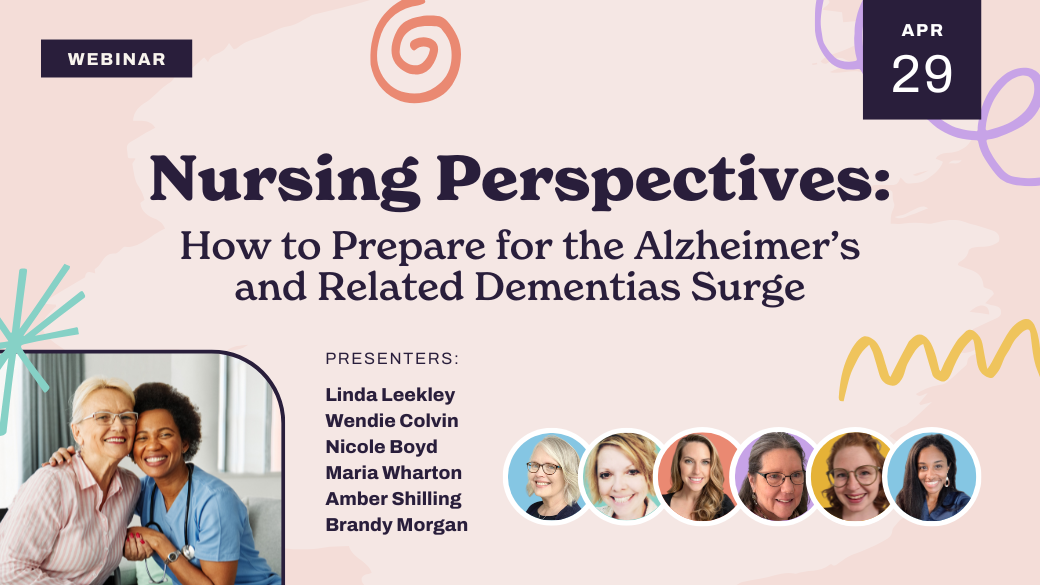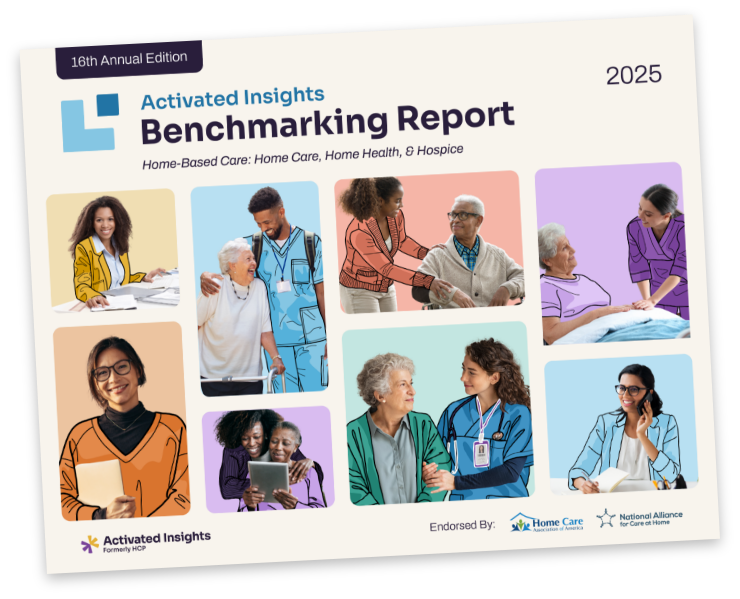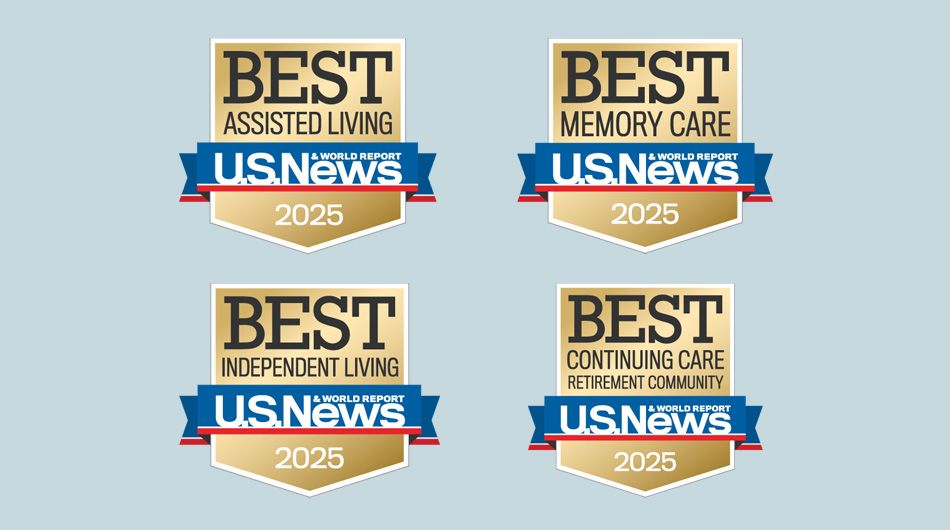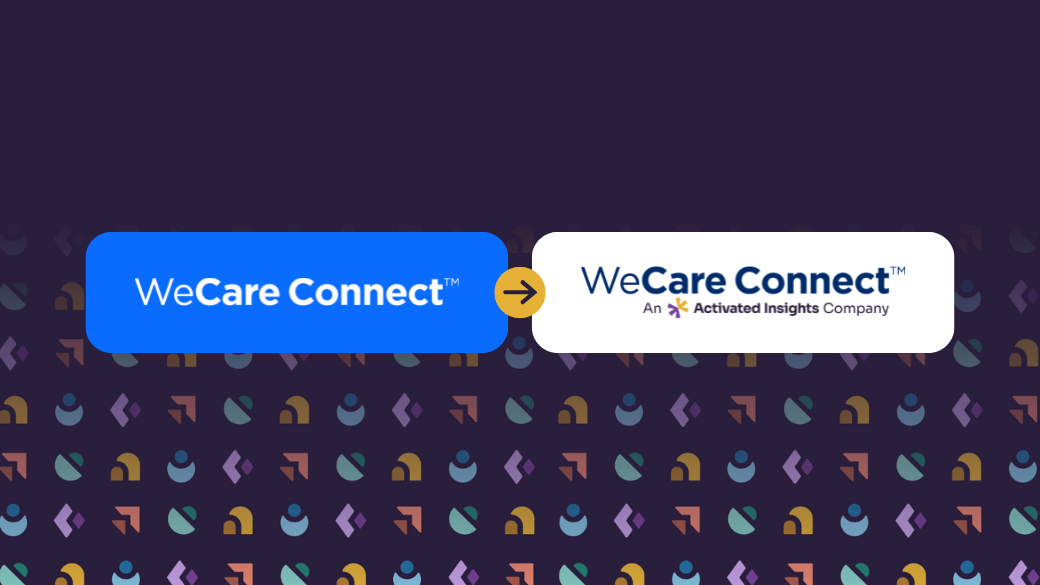It is easy for all healthcare providers to be “givers” and share their compassion willingly as they care for patients and families. But what about the professional home care and hospice caregivers who create these amazing impacts on all of their patients and families. Are we checking on them?
I recently wrote a course about Alzheimer’s Disease and Related Dementias. In the course, I decided to be different with my writing style and follow the course of Grace, a fictional patient who learners will follow along the path of her disease process.
Grace’s daughter Shelby is a character in the course as well, and much of my content centered around how Shelby was experiencing the disease process and how to respond to her mother’s condition. Grace had a private home care aide who later followed her to an assisted living, and Grace also received home health and hospice services as the storyline grew.
Having a grandmother who passed of Alzheimer’s disease and having served myself in many team roles in home health and hospice, I knew how to express the value that these post-acute professionals provide. As I continued to write, I put a lot of thought into conveying how to address the mental health of Grace and other patients struggling with dementia symptoms, as well as the mental health of the daughter caregiver Shelby.
As I was wrapping up my writing, I decided to stop and go back. What did I forget?
I almost forgot to write about how the professionals helping to take care of Grace needed support.
Self-care and the protection of your own mental health is important for everyone. Typical nurse that I am, I focused on caring for the patient and family and almost forgot to address the professional caregivers that also need support! Nurses do the caring, they don’t get taken care of!
It is easy for all healthcare providers to be “givers” and share their compassion willingly as they care for patients and families. But what about the professional home care and hospice caregivers who create these amazing impacts on all of their patients and families. Are we checking on them? Are you addressing the mental health of everyone on your patient care team? The patient? The family and loved ones? Plus the professional caregivers?
May is Mental Health Awareness Month, but everyone deserves to have their mental health appreciated year-round. If the old adage “it takes a village” is true, is everyone in the village being looked after? This month, more than ever, what can you do to make sure every member of your home care or hospice team is supported mentally in the workplace?
Check In and Recognize the Symptoms of Stress
Start simple and check in. Ask your staff, “how are you really doing?” According to the CDC, symptoms of stress may include:
If your staff has obvious signs of stress or admits to hiding these symptoms, dig deeper and ask, “can I do anything to help decrease your stress at work?” Obviously, stressors at home are not under your control, but workplace stressors may be identified and even fixed with new resolutions.
What can you do as a leader of your home care or hospice team?
Are you doing okay?
I managed a hospice aide named Mary who had a work stressor that was definitely affecting her mental health, and I never realized it until I finally asked, “are you doing okay?”
A few weeks earlier, her favorite patient passed away. We did our typical condolences to the patient’s family and the daughter was scheduled for bereavement counseling. When we discussed the patient’s passing as a team, everyone gave thanks for this sweet lady and agreed that her death was “good,” with her comfortably passing with her daughter at her side. Hospice did their job and the team felt fulfilled in their duties.
But Mary was very quiet during that meeting. The week got busy, and so did the next one, so I didn’t think to check in with Mary. One day, she was in the stock room, and I noticed she seemed different, very quiet and distracted as she mindlessly stocked a shelf with briefs and wipes.
So I asked, “are you doing okay?” She said, which surprised me, “You know, I’m not.” Mary proceeded to tell me that not only did the passing of that patient in particular trigger emotions for her, but she also had several deaths and a big territory change to her schedule in the last month.
Feeling Stressed and Mentally Overwhelmed
Mary finally talked to me and explained how she was feeling, because I asked. After having her sit down with me, we actually came up with a smarter schedule for her. Fortunately, she was not experiencing a level of compassion fatigue that required counseling or anything additional. Mary was just stressed and mentally worn down from the job she did every day.
We all know that it is hard to work in healthcare. Professionals do get attached to their patients, and they can feel the stress when a patient may be experiencing a change in their condition or function and require additional care, or if they have new symptoms or behaviors that require management.
From a home care aide to a home health physical therapist to a hospice nurse, every professional has a job to do. I told Mary, it’s okay to be overwhelmed in your job sometimes, it happens to all of us—patients and caregivers included. It’s okay to feel stressed, but you can take steps so your own mental health doesn’t suffer. Changing Mary’s schedule and letting her verbalize her stressors made a huge impact, and she returned to her old happy self a few weeks later.
I wanted Mary and the entire team to feel supported, not only by me, but by things that they could do for themselves and for each other. It is not always feasible to ask every staff member, “Are you okay?” Take this Mental Health Awareness Month as a starting point to help your staff to take care of themselves.
Tips for Effective Self-Care:
As a final task this month, how about taking time for your staff to share stories of their favorite patients and why the patient made an impact on them, or how they made an impact just by caring for them? Make a meeting, schedule a lunch, even do a remote event dedicated to acknowledging those positive experiences that all caregivers find rewarding. Let them share stories.
Sometimes in our challenging healthcare landscapes, we may forget to “check in” with each other and remind each other why we are in these careers that we chose.
There is a beautiful quote by Maya Angelou that sums up what every healthcare professional, no matter your role or industry that you serve, can relate to: “As a nurse, we have the opportunity to heal the heart, mind, soul and body of our patients, their families and ourselves. They may forget your name, but they will never forget how you made them feel.”
Remind your team that you value their mental health and keep that compassion for their wellbeing flowing this month and always.
Learn more:
Related Posts











